*New* CSDE Scholars Please Link your Publication to CSDE’s Center Grant via PubMed!
|
We need your help! Please link your research publications via PubMed to CSDE’s center grant, if you have benefitted from CSDE’s infrastructure. CSDE’s center grant infrastructure (staff, computing, seminars, seed funding, matches, mock reviews, working groups, travel funds, e-news announcements, etc.) wouldn’t be possible without NIH support. It’s easy to link your publications and it shows our sponsors what great work we are doing, which means we can better support you!
Acknowledgements in the acknowledgements section of your paper are also very much appreciated. Here is a link to language for acknowledging CSDE’s support in your work (presentations and publications).
(read more)
|
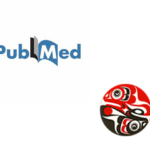 |
*New* ASA Population Section: July Mid-Month Updates for 2024
|
Dear Population Section Members,
Welcome to our mid-month updates. We have exciting news, including a call for articles from the Russell Sage Foundation Journal of the Social Sciences and an invitation from the ASA Section on Aging and the Life Course.
Here are our updates:
Announcement Summary
- Call for papers: The Russell Sage Foundation Journal of the Social Sciences special issue, “Moving Beyond Deaths of Despair: Understanding Rising Mortality and Morbidity among Americans without College Degrees,” due by Sep 4.
- Activity invitation: ASA Section on Aging and the Life Course sessions, roundtables, and research groups on Aug 10-11.
(read more)
|
 |
Call for AGU Abstracts: SY01: Data Co-Production at Scale: How Might We Co-Produce Social Indicators with Geo-Statistcal Models? (Due 7/31/2024)
|
The AGU Fall Meeting 2024 will be held in Washington, DC from December 9-13, 2024. The abstract submission deadline is July 31, 2024. We welcome your submission to the following session.
Session ID: 228351
Session Title: SY017: Data Co-Production at Scale: How Might We Co-Produce Social Indicators with Geo-Statistical Models?
Section: Science and Society
Submission link: https://agu.confex.com/agu/agu24/prelim.cgi/Home/0
Session Description: Modeled social indicators (e.g. population density, neighborhood poverty) at finescale are increasingly common and necessary to address priorities of dynamic, interconnected societies. Geo-statistical models require ground-"truthed" training and/or validation data. Many social and physical scientists are unconvinced that local stakeholder engagement (bottom-up) methods are compatible with modeled/scaled data production (topdown). After all, how can we meaningfully engage every community being modeled? This session challenges the notion that top-down and bottom-up data production methods are mutually exclusive. Speakers describe approaches for modeled data co-production at scale, and posit that co-production is even necessary to model social indicators so as to ensure outputs are: relevant (reflect local realities), valid (sufficiently accurate and complete at the right scale), impactful (generate new insights among the right stakeholders), and just (marginalized communities are centered and protected throughout). Presenters discuss their methods, partnerships, and other ingredients for scalable data co-production, and the value-added of these approaches.
(read more)
|
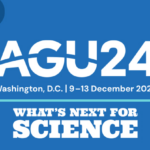 |
*New* Biomarker Working Group: DNA Methylation and Epigenetic Clocks (8/1/24)
|
Date: Thursday, August 1, 2024
Time: 12:00 pm – 1:00 pm
Location: Raitt 223 and https://washington.zoom.us/j/91571954774
Please join the CSDE Biomarker Working Group for an upcoming discussion on DNA methylation and epigenetic clocks as biomarkers of aging! Special guest, Dr. Calen Ryan (Associate Research Scientist and Senior Data Scientist, Butler Columbia Aging Center at Columbia University) will present an overview of how epigenetic clocks are used in research on biological aging. Following the presentation, there will be time for questions and discussions of how DNA methylation data and methods might be applied to your research interests. From some background reading, please check out this review paper by Dr. Ryan.
The Biomarker Working Group meets on the first Thursday of each month. Please contact Tiffany Pan (tpan@uw.edu) for more information.
(read more)
|
 |
*New* U.S. Census Bureau Seeking Feedback on the Timeline to Update Race and Ethnicity Data in ACS (Due 8/12/24)
|
Earlier today the U.S. Census Bureau published a Federal Register Notice (FRN) seeking feedback from the public on the timeline to implement the Office of Management and Budget’s updated Statistical Policy Directive No. 15 for Federal race and ethnicity data on the American Community Survey (ACS). The information gathered through this FRN will be taken into consideration as the U.S. Census Bureau continues to evaluate the practicability of implementing the updated race and ethnicity data standards into either the 2026 ACS or the 2027 ACS. The FRN recognizes that implementing the updated SPD 15 in the ACS as quickly as possible is essential, and indicates that based on their initial assessment, implementation in ACS data collection will be targeted for 2027, with dissemination of data products to then begin in 2028.
You may submit comments through August 12, 2024 at the Federal Register or Regulations.gov.
(read more)
|
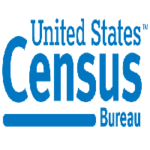 |
*New* Opportunity for Funding: Using Longitudinal Data to Support State Education Policymaking Grants (Due 8/15/24)
|
Institute for Education Sciences (IES) invites applications for a this new grant program for fiscal year 2025 (FY 2025) through the National Center for Education Research. Applications are due August 15, 2024. Under the Using Longitudinal Data to Support State Education Policymaking competition, NCER is inviting applications that address state agencies’ use of their state’s education longitudinal data systems to identify and reduce opportunity and achievement gaps for learners from prekindergarten through adult education. For more information about this research opportunity and the application process, visit the IES Funding Opportunities web page. IES will provide virtual office hours for this new competition. Please see the Virtual Technical Assistance web page for additional details.
(read more)
|
 |
*New* UW Libraries Most Wanted: Unlocking Insights – Online Web Scraping Workshop (8/19/24)
|
Join UW Libraries for an engaging online workshop on Web Scraping! Whether you’re a beginner or have some experience, this session is designed to equip you with the skills needed to gather valuable data from the web. Learn essential techniques for scraping web content effectively. The workshop will take place on Monday, August 19th from 11:00am – 12:00 pm online. Learn more and register on the event page.
(read more)
|
 |
*New* UW Libraries Most Wanted: Introduction to the Scholarly Publishing Ecosystem (8/22/24)
|
With the academic community’s growing emphasis on maximizing research impact and equity through widespread dissemination, it’s crucial to understand the evolving scholarly publishing ecosystem. In this workshop, we’ll learn about the roles of publishers, the inner workings of peer review, and the mechanisms for financing scholarly communication. This workshop will occur virtually on Thursday, August 22nd from 1:30 – 2:30 p.m. Learn more and register here.
(read more)
|
 |
*New* Call for papers: Special Issue of China Population and Development Studies (Due 8/31/24)
China Population and Development Studies (CPDS) is a Springer published flagship English scholarly peer-reviewed international journal and hosted by China Population and Development Research Center; CPDS addresses a broad range of topics related to population and development internationally (https://www.springer.com/journal/42379). CPDS announces a call for submissions of papers for a special issue that address “Projections/analyses of Households and Living Arrangements, and Applications in Healthy Aging and Sustainable Development Studies”.
(read more)
*New* Opportunity for Funding: Transformative Research in the Education Sciences Grants (9/12/24)
|
Through the Transformative Research program, IES seeks to support innovative research that has the potential to make dramatic advances towards solving seemingly intractable problems and challenges in the education field and/or to accelerate the pace of conducting education research to facilitate major breakthroughs. For FY2025, the Transformative Research in the Education Sciences Grants program will focus on accelerating learning and reducing persistent education inequities by leveraging evidence-based principles from the learning sciences coupled with advanced technology to create high-reward, scalable technology solutions. Applications are due September 12, 2024. For more information about this research opportunity and the application process, visit the IES Funding Opportunities web page. IES will provide virtual office hours for this new competition. Please see the Virtual Technical Assistance web page for additional details.
(read more)
|
 |
*New* Call for Papers on Immigration and Families: Examining the Causes, Processes, and Consequences of Migration (Due 9/14/24)
|
Contemporary Perspectives in Family Research, a series which focuses upon cuttingedge topics in family research around the globe, is seeking manuscript submissions for a special volume. The theme of the volume is: ‘Immigration and Families: Examining the Causes, Processes, and Consequences of Migration. The deadline for submissions is September 15, 2024. Direct all questions to the editors: Josip.obradovic@gmail.com and slblair@buffalo.edu. Authors are encouraged to submit a brief abstract prior to the manuscript deadline. See the full call for papers here.
(read more)
|
 |
International Union for the Scientific Study of Population (IUSSP) 30th International Population Conference 13th-18th July, 2025 in Brisbane, Australia (Abstract Submission Due 9/15/2024)
|
The IUSSP International Population Conference is the world’s largest international scientific conference on population issues. First organized in 1927 and held every four years since 1959, the conference brings together over 2,000 scientists, policymakers and practitioners from around the globe to present and discuss the latest research on contemporary population and development issues.
At the invitation of the Australian Population Association, the 30th International Population Conference (IPC2025) will take place in Brisbane, Australia at the Brisbane Convention and Exhibition Centre (BCEC) from 13 to 18 July 2025. IPC 2025 will be an in-person conference. The Conference will include over 800 oral presentations and up to 1,000 posters selected from research submitted to the Call for Papers. There will also be plenary sessions, debates and invited panel discussions featuring leading experts in the field, as well as training workshops, exhibits and side meetings occurring both before and during the Conference.
The scientific program of the Conference will be created from abstracts submitted to the Call for Papers by the submission deadline of 15 September 2024. All abstracts must be submitted online via the IPC2025 website, which is scheduled to open for submissions on 1 May 2024. Always check the IPC2025 Conference website https://ipc2025.iussp.org/ for updates.
(read more)
|
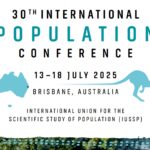 |
Call for Papers: 14th Alpine Population Conference – 12-15 January, 2025, Aosta Valley, Italy (Due 9/23/2024)
|
Alp-Pop brings together scholars interested in population issues across several disciplines, including demography, economics, epidemiology, political science, sociology and psychology. The conference emphasizes empirical rigor and innovation over a given topic or geographical area, and meets the challenges of interdisciplinary and international
audiences.
Alp-Pop scholars confer both formally and informally. A traditional conference program (paper and poster presentations) mixes with group activities in a world-class winter resort. The conference location, the Hotel Planibel in La Thuile (Aosta Valley), is next to the ski-slopes, and is in close proximity to the airports of Geneva and Torino/Milano.
Please submit your paper here.
Communication of the acceptance of papers will take place by mid-October. The deadline for submission of original papers or extended abstracts is 23 September 2024.
(read more)
|
 |
*New* Workshop on Bayesian Methods in the Social Sciences (Register by 9/27/24)
|
The French Institute of Mathematics for Planet Earth and the Social and Behavioral Data Science Centre of the University of Amsterdam will be hosting its second workshop on Bayesian Methods. This three-day workshop will take place at the University of Amsterdam, on October 16-18th of 2024. The event will gather statisticians, mathematicians and social scientists around the theme of Bayesian statistical methods for the social sciences. This area has been growing rapidly in the past decade, and the speakers will include some of the leading researchers in the area from around the world. Register by September 27th. Learn more here!
It is the second edition of the workshop. The first edition was held in Paris in October 2022 and was a great success.
The first day of the workshop, 16 October 2024, will consist of introductory tutorial sessions. Days 2 and 3 will consist of talks and posters on cutting-edge research in the area.
(read more)
|
 |
CSDE Population Research Planning Grants (PRPGs) (Rolling deadline)
|
Population Research Planning Grants (PRPGs) are designed to provide in-kind support and/or funds of up to $25k* to support a wide array of activity types throughout the development of a research project. As part of our mission to complement rather than duplicate other campus opportunities such as the Population Health Initiative seed grants, we will consider funding things activities such as:
(read more)
|
 |
CSDE Matching Support to Supplement On-campus Funding (Rolling deadline)
|
CSDE Matching Support includes in-kind or monetary support to accompany a submission to other on-campus funding mechanism, such as PHI, EarthLab, or Urban@UW. All projects must have a CSDE affiliate who is UW faculty and is listed as a PI or co-PI, with any number of other collaborators. Note that we require (PRPGs) or strongly suggest (matching funds) contacting either Development Core Director (Steven Goodreau) or CSDE Director (Sara Curran) to discuss possibilities for your specific proposal before submission.
(read more)
|
 |
*New* Mapping Homelessness: Visualizing Trends and Challenges
|
In the wake of the recent U.S. Supreme Court decision backing anti-camping laws, which significantly impacts homeless individuals across the nation, PolicyMap’s U.S. Department of Housing and Urban Development (HUD) Homelessness data update comes at a crucial time. This refreshed dataset provides essential insights into homelessness, helping communities and policymakers better understand and respond to the ever evolving challenges faced by homeless populations.
(read more)
|
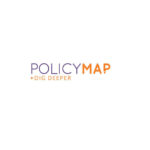 |
NSF: Proposals Impacting Tribal Nation Resources & Interests
|
As of 5/20/2024, NSF proposals that may impact the resources or interests of a federally recognized Tribal Nation will not be awarded by NSF without prior written approval from the official(s) designated by the relevant Tribal Nation(s).
Proposers must:
- Seek guidance from the potentially impacted Tribal Nation on activities that require review and prior approval from that Tribal Nation’s authorized designee.
- Submit a written request to the relevant Tribal Nation (based on their guidance), for approval to carry out the proposed activity that requires their review and approval.
- Complete the checkbox for “Potential Impacts on Tribal Nations” on the Cover Sheet. Note, lead organizations are responsible for this on collaborative proposals & proposals with subawards considered a single unified project.
- Upload one of the following into "Other supplementary documents" of Research.gov:
- a copy of the written request to the relevant Tribal Nation to carry out any proposed activity/activities that may require prior approval from them
- written confirmation from the Tribal Nation(s) that review and approval is not required
- a copy of relevant Tribal Nation approval
(read more)
|
 |
Overview of Grant Application and Review Changes for Due Dates on or after January 25, 2025
|
This notice provides the research and research training community an overview of application and peer review changes impacting grant applications submitted for due dates on or after January 25, 2025, including:
- Simplified Review Framework for Most Research Project Grant Applications
- Revisions to the NIH Fellowship Application and Review Process
- Updates to Reference Letter Guidance
- Updates to NRSA Training Grant Applications
- Updated Application Forms (FORMS-I)
- Common Forms for Biographical Sketch and Current and Pending (Other) Support
(read more)
|
 |
|

